Text
Sustainability Governance: Workshop and Summer School
I am part of a NSF funded Centers for Research and Innovation in Science, the Environment and Society (CRISES) planning grant and we are planning for a Center on Sustainability and Governance in the Anthropocene (C-SAGA) that focuses on innovative interdisciplinary social science research that develops and assesses needed new forms of environmental governance. This will require innovations across knowledge systems, attention to coproduction of solutions with multiple stakeholders who are empowered to act, and advances in understanding desirable visions of the future and how to achieve them. We have a launch symposium on May 7 that will feature three speakers addressing how to manage major challenges like climate change, food security, and biodiversity loss in the face of accelerating human pressure, increasing complexity, and persistent inequality. The day-long event will feature talks by Dr. Jennifer Clapp, Canada Research Chair & Professor, School of Environment, Resources and Sustainability, University of Waterloo, Canada; Dr. Ratana Chuenpagdee, Professor, Department of Geography, Memorial University of Newfoundland; and Dr. Meredith Gore, Associate Professor, Department of Geographical Sciences, University of Maryland College Park. We would welcome attendance in person or online and ask people to register here by May 1 to attend https://lnkd.in/eyXW8-Hi
We are also running an inaugural summer school for early career Ph.D. students working on governance and sustainability here at Rutgers August 20-23. The goal of the Summer School is to increase the capacity of early-stage researchers to learn more about this field and the need for interdisciplinary scholarship and collaboration. During the workshop, we will bring together scholars from a range of disciplines in a small group setting to learn, exchange ideas, and build partnerships. Training on essential skills will be offered on topics suited to the applicants, and may include working in collaborative governance, science communication, social science methods, and grant and publication guidance. Faculty from across Rutgers working in the sustainability governance area will opportunities for career advice, mentorship, and networking. At the end of the workshop, the relationships built with other students will provide mutual support for the future. Additional information can be found here: https://lnkd.in/e4qG6mN5 and applications are due May 15: https://lnkd.in/eRtGneVR
0 notes
Text
Climate Tipping Points
Looking forward to an interesting conversation as we explore climate tipping points!
As climate change progresses, elements of the Earth system may reach tipping points–like dieback of the Amazon rainforest, or rapid collapse of ice sheets. Human society may also reach tipping points: some could be negative and lead to mass migration or major economic shifts, but some could be positive, like widespread battery storage supercharging adoption of renewables. Laurie Goering (Thomson Reuters Foundation) will moderate a conversation between Ilona M. Otto (University of Graz) and Rachael Shwom (Rutgers University) about the tipping points we are approaching, how to prepare for those we may reach, and how to encourage positive social tipping points for action on climate change. Join us for Climate Conversations: Tipping Points on Thursday, March 30 from 3:00 to 4:15pm ET: https://bit.ly/cc-tipping-points
2 notes
·
View notes
Text
Special issue of Human Ecology Review:
Innovations in Human Ecology - Looking Back and Moving Forward
In 2003, Drs. Tom Dietz and Linda Kalof were hired at Michigan State University’s Sociology Department and initiated the Ecocultural Studies Research Group. The group brought together scholars that worked at the intersection of environment, animals and humans in the tradition of human ecology. The underlying idea is that an ecological system is constituted by humans, other animals, and the biophysical world all influencing each other. For example, it is now popularly accepted that humans have a significant influence on ecological systems - both its animal species and biophysical processes (Dietz et al., 2013). Significant work emerged from this group on how animals and environmental factors influence human behaviors, such as recognizing the role of animals in history (Kalof, 2007; Pohl-Resl and Kalof, 2021), the role of underlying human values but also of social structural forces in shaping ecosystem change (Dietz et al. 2005), and how companion animals influence crucial decisions such as those to leave relationships where there is domestic violence (Barrett et al., 2018). This work has been characterized by a dual commitment to quantitative and qualitative approaches. It has also employed an empirical research approach that takes seriously both critical realist and social constructionist paradigms.
Both the founding scholars are assuming emeritus status and the 20th anniversary of the community is upon us. We plan a meeting and a special journal issue to assess progress, identify challenges and celebrate continuing work. We welcome abstracts that reflect the themes of this tradition. Examples of areas of inquiry that might be addressed include but are not limited to:
● the intersection of harms perpetrated against humans, other animals, and the environment
● the symbolic and applied relations between humans and other animals
● the role of human values and other social psychological constructs in pro-environmental behavior and attitudes
● relationships among social structure and environmental conditions
● the applications of social science in addressing global environmental challenges, including deliberative processes that link science to the public
We are calling for 500-word abstracts to be submitted by August 25th, 2022 to [email protected] with the subject headline of “[Last Name of First Author] - INNOVATIONS IN HUMAN ECOLOGY”.
Selected abstracts will be notified by September 1, 2022 and invited to participate in a workshopping of a draft paper presentation October 17-18th at Michigan State University (funding situation to be determined, but we hope to provide travel assistance to early career scholars). Full paper manuscripts will be invited for submission to a special issue of Human Ecology Review by March 15, 2023. Manuscripts will be peer reviewed, need to be 6,500 words, no more than 50 references, and follow the author guidelines at https://www.societyforhumanecology.org/about-her. You may view past volumes of Human Ecology Review at https://press.anu.edu.au/publications/journals/human-ecology-review .
References:
Barrett, B. J., Fitzgerald, A., Peirone, A., Stevenson, R., & Cheung, C. H. (2018). Help-seeking among abused women with pets: Evidence from a Canadian sample. Violence and Victims, 33(4), 604-626.
Dietz, Thomas, Andrew Jorgenson, and Paul Ehrlich. Structural human ecology: new essays in risk, energy, and sustainability. Washington State University Press, 2013.
Dietz, Thomas, Amy Fitzgerald, and Rachael Shwom. "Environmental values." Annual review of environment and resources 30 (2005): 335. Kalof, L. (2007). Looking at animals in human history. Reaktion Books.
Pohl-Resl, B., & Kalof, L. (Eds.). (2021). A cultural history of animals in the medieval age. Zed Books.
2 notes
·
View notes
Photo



Brought my mom and kids to Europe with me but first stop is Cologne where GESIS - the institute for social science is hosting a 3 days workshop with the Dominoes group on climate relevant social tipping points. It has been great to return to this work that focuses on the different mechanisms of rapid social change.
2 notes
·
View notes
Photo

Spent the past two days in Stockholm at the Institute for Future Studies for a workshop titled “Sharing the Burden? Public Values, Attitudes, and Preferences about Climate Policy.” Malcolm Fairbrother brought together a great group of sociologists, economists, psychologists, and political scientists working on public opinion on climate change and how it may inform addressing climate change for future generations. I sought feedback on how to proceed with studying long term risk governance. Encouraged by others who presented on public acceptability of various policy solutions and new aspects of climate change public opinion.
0 notes
Link
Many environmental problems entail a temporal dilemma. Societies benefit from resource use now that will have cumulative negative impacts on future generations. All too often, societies only act to address these risks after a crisis (such as a fisheries collapse or a river on fire) has occurred. Climate change presents a particularly challenging case since when society decides the harms are too great to withstand, reducing greenhouse gas emissions drastically will take time and society will be left to suffer, adapt or undertake risky geoengineering. In this article, we ask the question: Under what conditions do societies act to address a long-term risk before crisis? We draw from the literature in economics, psychology, sociology and political science to provide a range of potential factors that would contribute to addressing long-term risks. We find that long-term risk governance is under-theorized and that existing relevant understandings are highly fragmented. We also find that empirical studies testing these theories are limited in number and have mixed results. We propose that case studies of long-term risks that have been addressed could be a fruitful avenue forward in developing a more cohesive and empirically rooted theory of when societies address a future risk before a crisis point.
0 notes
Link
This spring I spent a lot of time reading and 2 weeks in China interviewing people about climate change politics. Understanding the situation and dynamics will take me a lot longer, but here are a few thoughts on issues facing China as it seeks to reduce greenhouse gas emissions
0 notes
Photo

Speaking at Temple University’s Transdisciplinary Sustainability Symposium on “Getting to Green: Facts and Values in the Age of Trump.”
0 notes
Link
We have a new paper out in Regional Environmental Change on how NGOs cultivate allies in business in government to achieve their mission.
My two favorite points that we got to draw out in this paper:
First, McAdams early work on political opportunity structure noted two dimensions of political opportunity structure – the openness of the state and the availability of potential allies. This turns out to be important for NGOs cultivating cross-sectoral partnerships because these dimensions are often not independent of each other. That is – when the state was open, businesses were more likely to be willing to ally. And when the state was closed, businesses were less likely to ally.
Second, building on the qualitative interviews, we introduce the idea of how NGOs perform legitimacy for different audiences to engage in cross-sectoral partnerships: We write:
“As we conducted interviews, it became clear that NGOs often employed strategies to cultivate their legitimacy across sectors. As suggested in previous research (Lyon 2010), this is an important strategy for moderate or institutionalized NGOS building cross-sectoral partnerships. NGOs must maintain their reputation as being true to their energy efficiency mission while also engaging with those who have fought against energy efficiency. Not only does this matter to their NGO key constituency (i.e. funders or members), but it also matters to their potential business and government partners who gain reputational benefits only if they are working with a legitimate NGO. The performance of legitimacy suggests entrepreneurs’ reflexivity on the importance of their social location as a source of their power in cross-sectoral innovations.”
0 notes
Photo
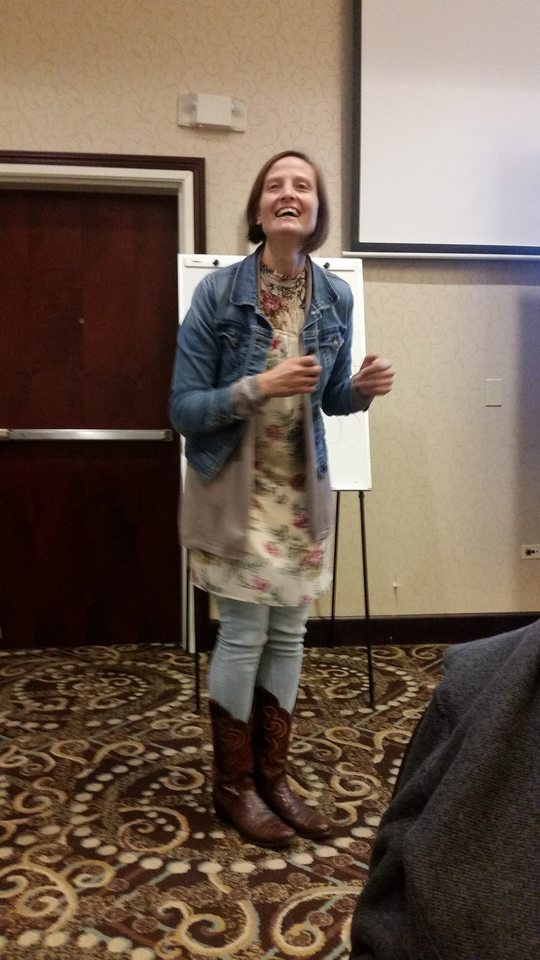
Why am I so excited to be introducing the Socioeconomic team for our innovations in food energy and water grant ? First: my teammates are awesome. Second - this project will collect standardized social psychological and demographic measures across three different types of intervention studies to get people to conserve food energy and water: a role playing game, a national survey, and an actual household intervention so we will be able to know how different people respond to different types of interventions. Third: the household intervention will establish one of the most complete datasets of 250 households that objectively measures their food energy and water consumption along with a large number of household characteristics and their responses to household feedback and impacts messages.
0 notes
Photo
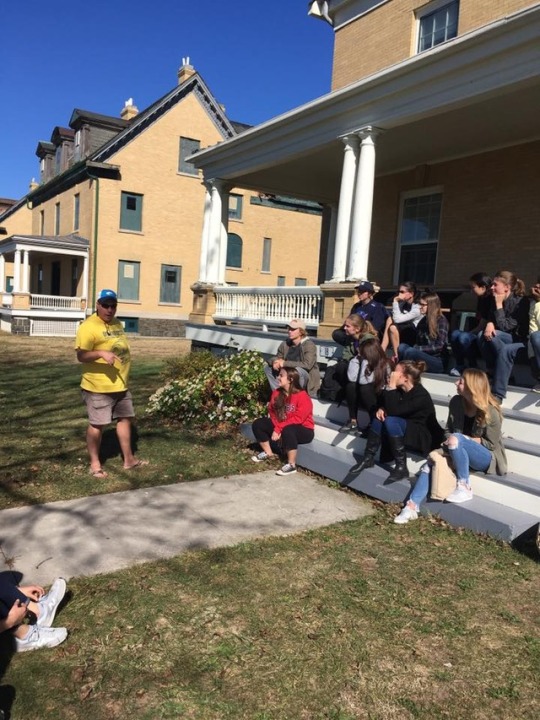
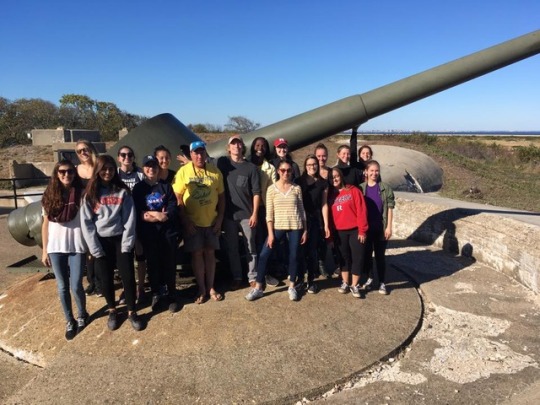
Theory and Reasoning of Human-Environment Relations Class took a field trip on October 20th to learn about coastal resiliency, adaptation, risk perceptions, and changing landscapes in Highlands and Sandy Hook. #placebasedlearning #makingtheoryreal
0 notes
Photo
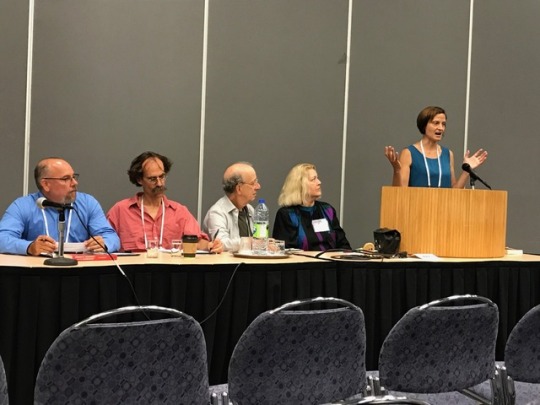
Introducing and critiquing Liam Downey's "Inequality Democracy and Inequality" with Ken Gould and Phil Brown. #asa2017
0 notes
Photo
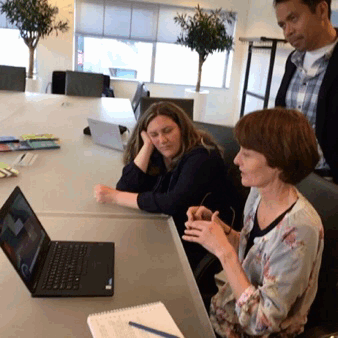
Learning about an energy conservation game from Els van Daalen at Delft University. We will be using a game to test food energy and water conservation interventions.
0 notes
Photo
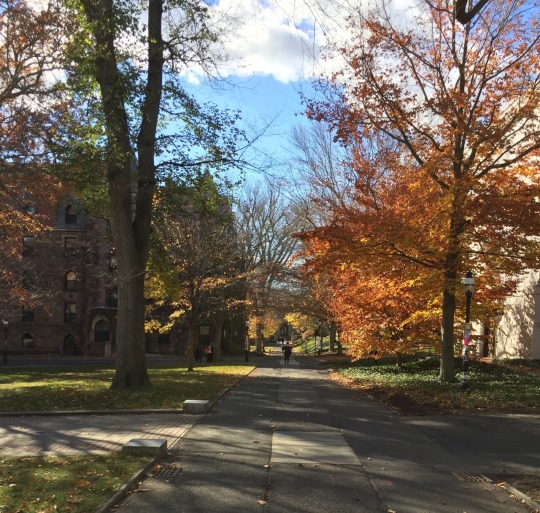
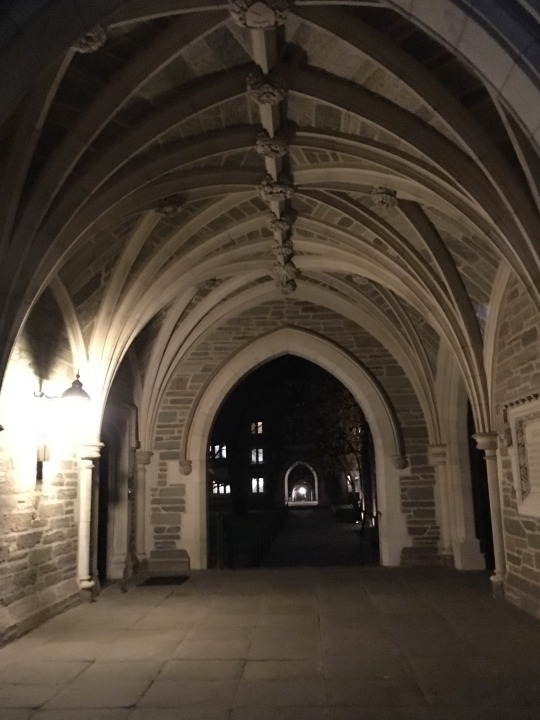

Social science research council Anxieties of Democracy program on climate change. Bob Kopp and I presented on when long term risks are addressed before a crisis.
0 notes
Photo


Thought provoking presentations today from "Workshop on Social Movements, Economic Innovation, and Institutional Change" at UCLA. My turn tomorrow!
0 notes
Text
Hiring Fall 2017: PhD Research Assistantship for Social Sciences of Energy Conservation

Drs. Rachael Shwom and Cara Cuite, Rutgers University, Department of Human Ecology seek applicants for a fully funded three-year research assistantship positions available for students pursuing a PhD in Sociology, Psychology, or Planning and Public Policy. Students will be involved in a National Science Foundation Innovations at the Nexus of Food, Energy, and Water (NSF INFEWS) “Reducing Household Food, Energy, and Water Consumption: A Quantitative Analysis of Interventions and Impacts of Conservation” funded interdisciplinary research project.
The project focuses on understanding and seeking ways to reduce greenhouse gas emissions through conservation of household-scale direct and indirect (via food and water) energy use. The graduate student will be involved in multiple aspects of the grant including: 1) the development of role playing games 2) the development of household food, energy, and water consumption data collection protocols 3) development and analysis of household interventions to decrease household greenhouse gas emissions via food, energy and water consumption. You will be part of a large research team with opportunities to collaborate with colleagues across the United States and the Netherlands in social, natural, and engineering sciences.
Successful applicants will be self-directed and have strong communication, organizational, and quantitative and qualitative social science research skills with a passionate interest in studying social dimensions of energy consumption and policy. They should be willing to travel internationally and to work in a highly interdisciplinary scientific team. To apply for this position, please send Dr. Rachael Shwom [email protected] your CV and a 1-page letter describing your interest and qualifications. We will start reviewing applications November 15, 2016 and continue until the position is filled. Please put “PhD Assistantship” in the subject line. Review of applications will begin on November 2nd and continue until this position is filled. The PhD assistantship at Rutgers University includes a stipend, tuition, and most fees for three full years with two additional years of funding for a teaching assistantship in the Department of Human Ecology.
The Department of Human Ecology runs a graduate certificate in Human Dimensions of Environmental Change which the research assistant will enroll in, but Human Ecology does not run a PhD graduate program. Therefore students working with us can choose a PhD in Sociology, Psychology or Planning and Public Policy at Rutgers University. The Application process for these graduate programs is a separate process with a January 15, 2017 deadline. The start date is fall 2017. Questions are welcome – contact Rachael at [email protected].
Rutgers University has a strong focus on the interdisciplinary study of environmental problems. The Department of Human Ecology was one the first of its kind, bringing social scientists from across disciplines together in a department to focus on environmental issues and work with other scientists in the School of Environmental and Biological Sciences. In addition, Rutgers has an active Climate Institute and Energy Institute that provide many opportunities to network with Rutgers colleagues and visiting speakers. Rutgers University- New Brunswick is located in the diverse area of north central New Jersey. It is an hour and 15 minutes to both New York City and Philadelphia and provides a varied offering of local and regional cultural and environmental amenities.
�?
0 notes
Text
New Food Energy Water Systems Grant to Study Approaches to Changing Consumption
Excited that we finally got official word that we have received an Innovation in Food Energy and Water Systems grant. I’ll be working with a great team of social scientists (Cara Cuite, a Rutgers trained psychologist, Chelsea Schelly and Kathleen Halverson at Michigan Tech, Kristin Flores at USFS, Linda Steg as an associate in the Netherlands, and Elizabeth Wilson at U of MN) and engineers (Dave Watkins MTU, Datu Buyung Agusdinata at ASU and at U of MN work on food impact analysis). The part I will be most involved in is recruiting and monitoring 200 suburban Chicago households baseline food, energy and water consumption and then developing metrics and measures to provide feedback to the households in a variety of experiments to evaluate what kinds of information effectively change food energy and water consumption. We anticipate many technical and social challenges to making this work, but are excited to advance the state of the knowledge.
This means we’ll be recruiting a graduate research assistant to Rutgers (Sociology, Psychology or Public Policy Departments since that is where we are affiliated Graduate Faculty because Rutgers Human Ecology does not have a graduate program) for 3 years with a likely 2 years of Human Ecology TA funding – so a total 5 year package. Please encourage any good students you know with an interest in this area to think about applying for fall 2017.
0 notes